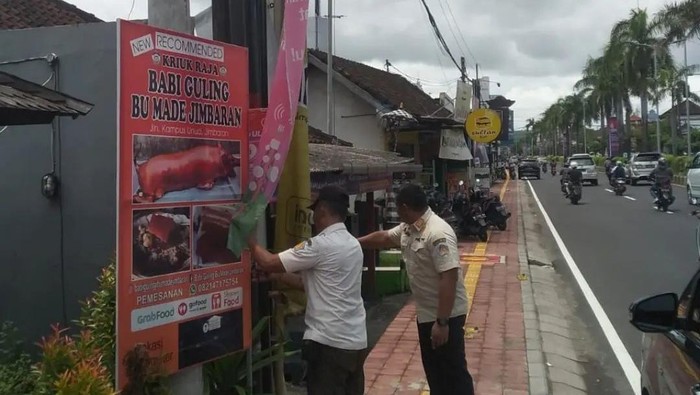Authorities in Bali responded to controversy over the weekend surrounding the removal of babi guling (roast suckling pig) promotional banners ahead of the upcoming G20 Summit.
They said that they are doing everything they can to spruce up G20 Summit venues and their surrounding areas by removing all billboards and banners, not just the ones for babi guling.
The issue came to light after it was brought up by Arya Wedakarna, a member of the Indonesian Regional Representatives Council for Bali. The politician said yesterday that while he supported the central government’s desire to clean up the Island of Gods ahead of the summit, he found it hard to believe that they would specifically target babi guling sellers.
Arya noted that President Joko Widodo is very popular on the island, winning 92 percent of the votes from Bali in the last election.
“I suspect two possibilities. First, there are officials in the central government who, based on their track records, are anti-Bali. I know who they are,” said Arya.
The second possibility, he added, is that there are Bali officials who want to curry favor with central government officials.
In Bali, a predominantly-Hindu island, babi guling posters and banners are abundant as the dish is hugely popular among locals and tourists. In other parts of Indonesia, especially Muslim-majority regions, there are virtually no signs of babi guling (or any other pork dishes, really) being promoted on the streets.
Arya went on and said that Bali should be shown “as it is.”
Another politician and social media activist, Ni Luh Djelantik, demanded on her Instagram account that the babi guling posters be restored and that the officials who took them down must compensate the sellers out of their own pockets.
Responding to the controversy, Bali Satpol PP (Public Order Agency) Chief Nyoman Rai Dharmadi said that the removals of posters, banners, and billboards are in line with instructions from Coordinating Maritime Affairs and Investment Minister Luhut Pandjaitan.
“Only posters for G20 are allowed,” he said.
He added that the babi guling posters only represented a small portion of the overall removals. In addition, he said, none of the signs were confiscated, but instead were temporarily hidden in the back of the eateries until after G20.
“[The footage that] went viral was not comprehensive, and no one confirmed with us, so [the reports] are not balanced,” he said.
At any rate, Rai Dharmadi suggested that babi guling sellers should use social media to promote their products.
“In the digital era like now, promotions are best using social media,” he said.





Reader Interactions